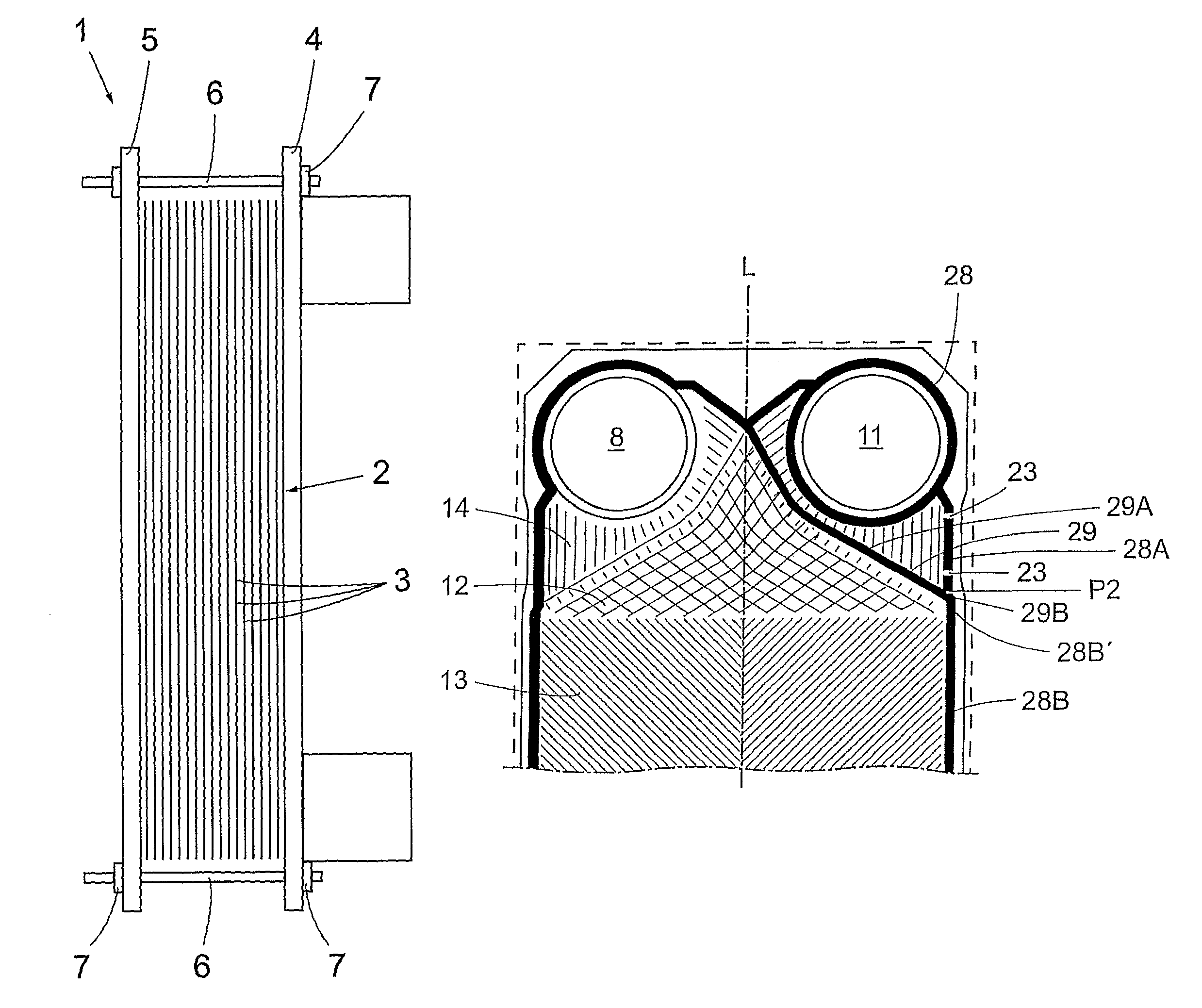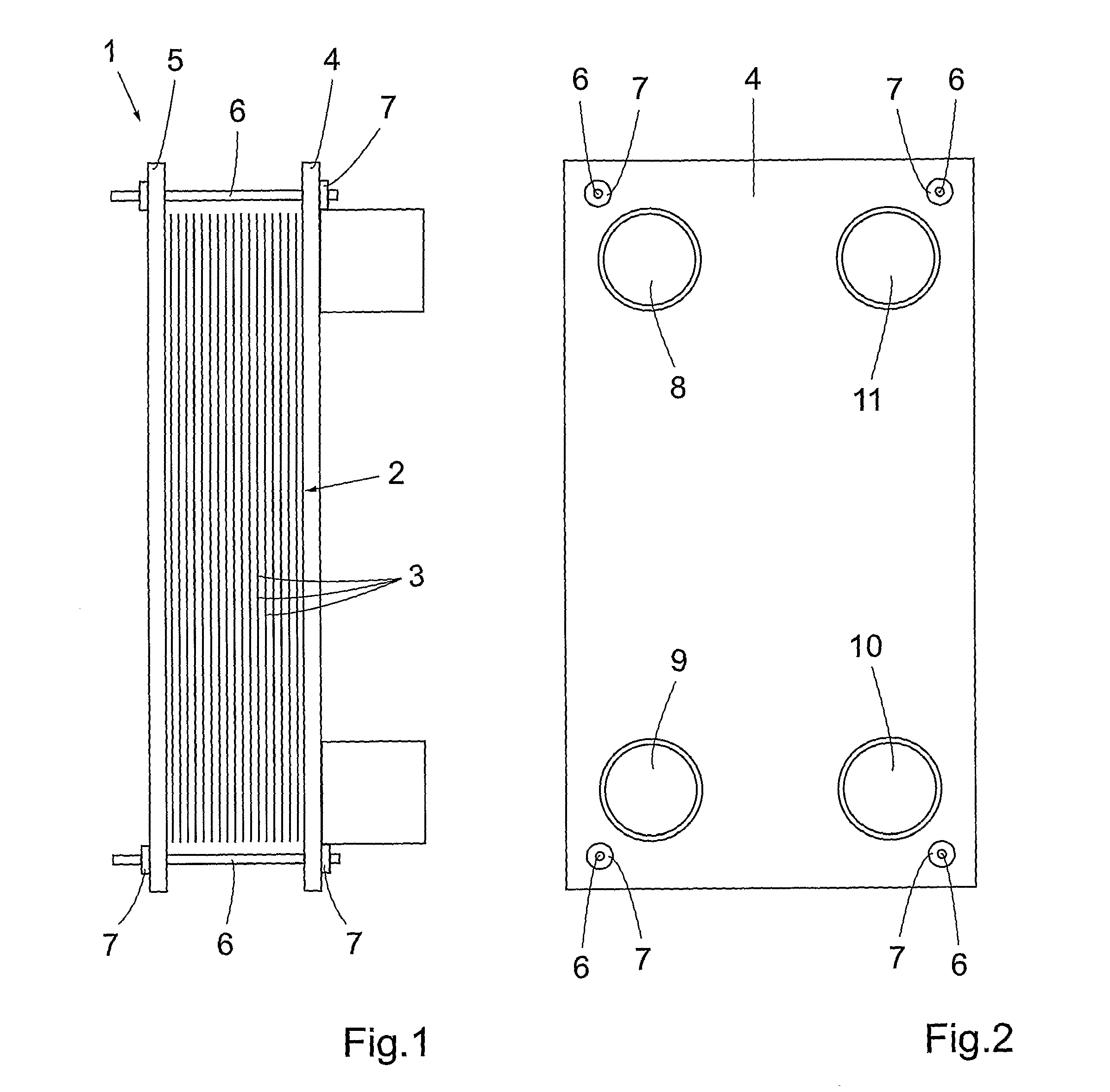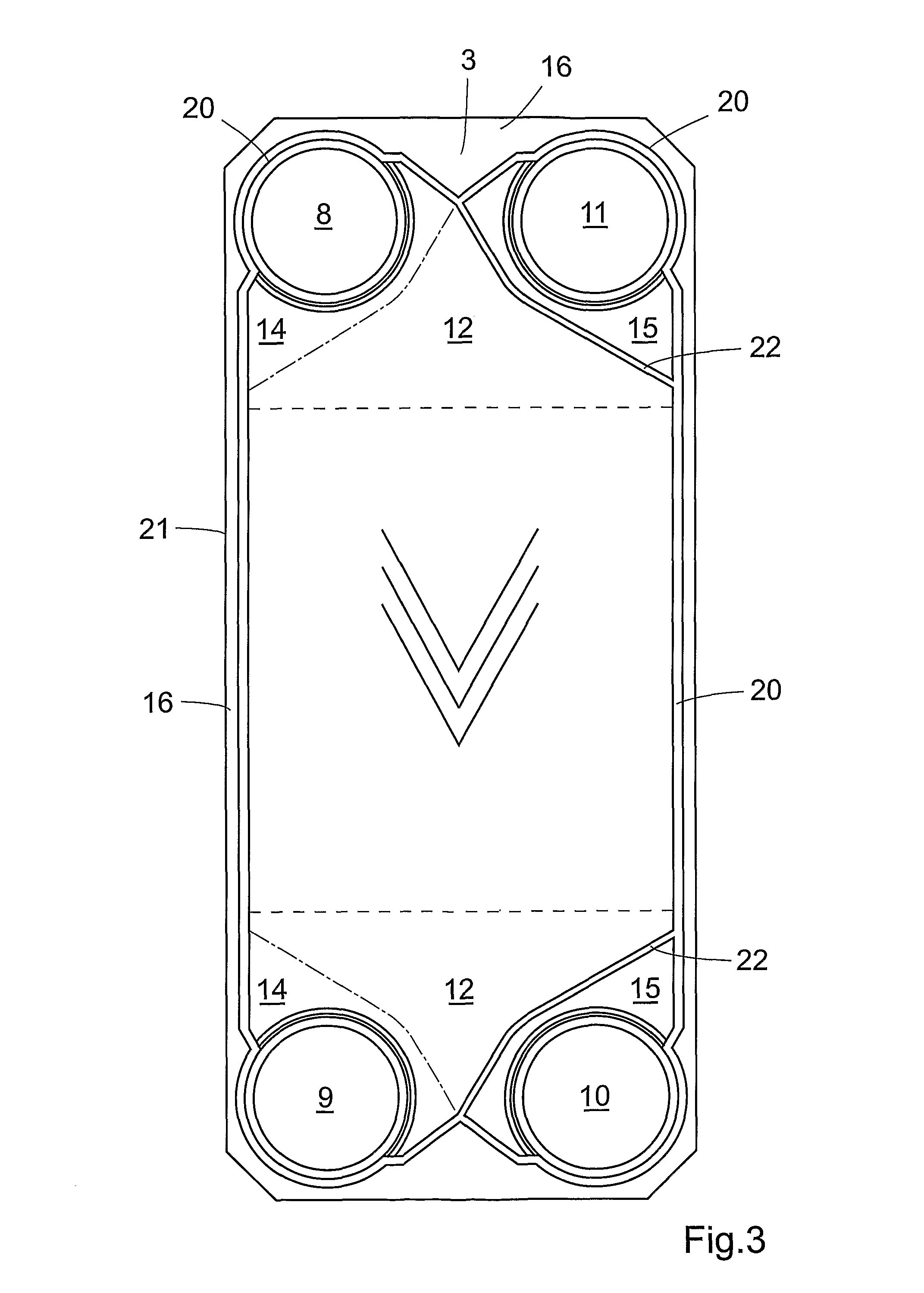Plate and gasket for plate heat exchanger
a technology of heat exchanger and plate, which is applied in the direction of heat exchanger fastening, light and heating apparatus, laminated elements, etc., can solve the problem of having to reduce the heat transfer region of the plate, and achieve the effect of increasing performance, reducing the number of plates, and ensuring the same capacity
- Summary
- Abstract
- Description
- Claims
- Application Information
AI Technical Summary
Benefits of technology
Problems solved by technology
Method used
Image
Examples
second embodiment
[0038]According to the invention, the first gasket groove 20, at the end 20C′ of the third portion 20C which points towards the heat transfer region 13, connects to the second gasket groove 22 at a point P1 which divides the second gasket groove 22 into a first section 22A extending between the centreline L and the point P1, and a second section 22B extending between the point P1 and the first gasket groove 20 at an end 20D′ of the fourth portion 20D.
[0039]Positioning the first gasket groove 20 at the third portion 20C along the second adiabatic region 15 somewhat further in on the heat exchanger plate 3, nearer to the centreline L, makes it possible to cater for the fact that there will be greater retraction of the heat exchanger plate along this edge section. The advantage is that the plate's heat transfer region 13 can be made larger than it would be if the first gasket groove 20 at the fourth portion 20D was instead positioned in relation to the retraction along the adiabatic re...
third embodiment
[0040]In the invention, two heat exchanger plates 3 are joined together permanently as a pair to form a cassette, e.g. by welding. Gaskets 19 are with advantage disposed between adjacent cassettes.
[0041]As mentioned above, gaskets 19 are fitted between two adjacent heat exchanger plates 3, or between two cassettes, before assembling the plate heat exchanger 1, and the shape of the gasket 19 corresponds in principle to the shape and extent of the gasket grooves 20, 22, as may be seen in FIGS. 5 and 7. The gasket is usually made of a rubber or polymer material.
first embodiment
[0042]According to the gasket 19 according to the invention, it comprises a first gasket part 28 to be accommodated in the gasket groove 20 and a second gasket part 29 to be accommodated in the gasket groove 22. The gasket part 28 extends in a section 28a along the adiabatic region 15 at a distance from a centreline L in the longitudinal direction of the heat exchanger plate 3 which is less than the distance from the first gasket part 28 in a section 28B along the heat transfer region 13 to the heat exchanger plate centreline L.
[0043]According to another embodiment, the gasket part 28, at an end 28A′ of the section 28A which points towards the heat transfer region 13, connects to the second gasket part 29 at a point P2 which divides the gasket part 29 into a first section 29A extending between the centreline L and the point P2, and a second section 29B extending between the point P2 and the gasket groove 28 at an end 28B′ of the section 28B.
[0044]To be able to transfer leaking mediu...
PUM
 Login to View More
Login to View More Abstract
Description
Claims
Application Information
 Login to View More
Login to View More - R&D
- Intellectual Property
- Life Sciences
- Materials
- Tech Scout
- Unparalleled Data Quality
- Higher Quality Content
- 60% Fewer Hallucinations
Browse by: Latest US Patents, China's latest patents, Technical Efficacy Thesaurus, Application Domain, Technology Topic, Popular Technical Reports.
© 2025 PatSnap. All rights reserved.Legal|Privacy policy|Modern Slavery Act Transparency Statement|Sitemap|About US| Contact US: help@patsnap.com



